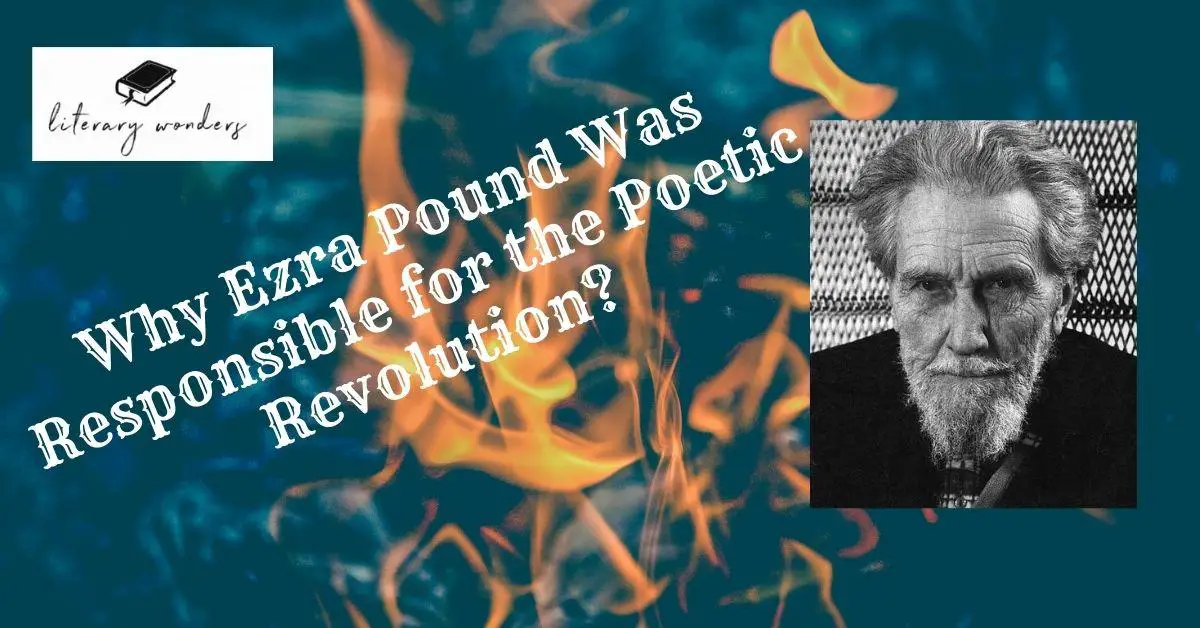Ezra Pound is regarded as one of the pioneers of modern poetry. He is often called the founder of imagism, the most important literary movements of the early 20th century. Pound’s life spans nearly all of the 20th century, but he still remains one of the most influential poets of his time.
His impact on literature, philosophy, economics and politics was revolutionary and monumental to say the least. Pound used his experience in both literature and politics to create a poetic revolution. His struggling life served as an inspiration to numerous other artists, such as T.S Eliot, James Joyce, William Carlos Williams, and Ernest Hemingway.
Revolution in Poetry
“To make a revolution in poetry, is it necessary to make a revolution in politics?” That quote of Ezra Pound represents what he did with his work as a poet, and as an artist. He started his struggle at very young age. With his hard work, he pushed boundaries and did things that few poets had done before him.
He challenged previous notions of proper literature when he created Imagism. A school of poetry which advocated clarity, precision and avoidance of all kinds of verbiage. He also wrote many other works in many different styles that still influence generations of writers today. His ability to adapt to new ideas made him one of America’s most significant poets ever.
His Influence
When Ezra Pound edited and published T.S. Eliot’s poem “The Love Song of J. Alfred Prufrock” in The Egoist in 1917, he launched a revolution that forever changed how poetry is read and written today. Writing in a conversational style more akin to everyday speech. Rather than over-wrought language filled with complex metaphors, epithets, and allusions.
Over time, a distinct feeling of modernism influenced literature. This manifested itself in various ways. For instance, a rising interest in science and experimentation; use of free verse over traditional forms; an increasing tendency toward abstraction rather than representation. But it wasn’t until T.S. Eliot and Ezra Pound began publishing work together that things really took off—though neither author knew it at first.
Eliot and Pound were friends, both aware of each other’s work from afar. However, they hadn’t yet met when Eliot accepted a job as assistant editor at The Egoist . While working there, he published his own poem, “The Love Song of J. Alfred Prufrock” under a pseudonym. He also helped promote some of Pound’s earliest poems while giving him advice on how to improve them. Eventually, their paths crossed and they became fast friends.
What came after him?
Ezra Pound’s experiments in literature inspired writers like Ernest Hemingway and T.S. Eliot to change their style and incorporate concepts like imagism into their work. In his own words: The image is not an idea; it is a radiant node or cluster–it is what I can ‘see’ in a flash. Without Pound’s influence, we might not have such icons of modernist writing as William Carlos Williams, E.E. Cummings or James Joyce. He also wrote In a Station of the Metro, which is widely considered one of if not the most famous poem written in English during that time period.
The originality debate
No one knows exactly how many poets there were at any point in time during Pound’s career, but it seems safe to say that he and Eliot dominated literary circles. Even after Imagism came about, there were still a number of different schools at work throughout Europe. An important fact to remember when looking at all of these different movements is that they each rose out of a reaction against previous ones. And, even though each new movement changed literature considerably, poets were still reading and drawing inspiration from past masters.
For example, T.S. Eliot drew heavily on Arthur Hugh Clough in his poem “The Love Song of J. Alfred Prufrock.” While Ernest Hemingway was an avid reader of James Joyce. Although some people might think that Pound and Eliot are ultimately responsible for bringing about the modernist period, their works show just how much influence other writers had on them. Thus, indirectly influenced future generations as well.
It’s also worth noting that neither Pound nor Eliot published anything particularly groundbreaking until they had both spent several years studying poetry. Although we tend to think of modernism as being ushered in by a couple of young upstarts who decided one day to try something new. It’s actually more accurate to see modernism as a culmination of influences over several decades.
Let’s Sum Up!
I hope you like the article, if you have any questions, please ask in the comment section.
See Also:

